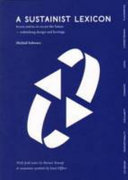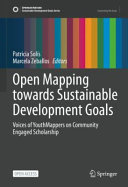What Is Co-Production Conceptualising And Understanding Co-Production Of Knowledge And Policy Across Different Theoretical Perspectives
Justyna Bandola-Gill, Megan Arthur, Rhodri Ivor Leng.

نبذة عن الكتاب
Background: ‘Co-production’ is one of the key concepts in evidence-informed policy and practice - in terms of both its theoretical importance and its practical applications - being consistently discussed as the most effective strategy for mobilising evidence in policy and practice contexts. The concept of co-production was developed (almost) independently across multiple disciplines and has been employed in various policy and practice fields including environment, sustainability, and health.Aims and objectives: This paper surveys the literature to identify different meanings of co-production across different disciplinary bodies of knowledge. Such exploration is aimed at identifying the key points of convergence and divergence across different disciplinary and theoretical traditions.Methods: We performed a systematic search of Web of Science via a query designed to capture literature likely focusing on co-production, and then manually examined each document for relevance. Citation network analysis was then used to ‘map’ this literature by grouping papers into clusters based on the density of citation links between papers. The top-cited papers within each cluster were thematically analysed.Findings: This research identified five meanings of co-production, understood as a science-politics relationship, as knowledge democracy, as transdisciplinarity, as boundary management, and as an evidence-use intervention.Discussion and conclusions: Even though different clusters of scholarship exploring co-production are closely connected, this concept is mobilised to capture phenomena at different levels of abstraction - from post-structuralist theories of knowledge and power to specific strategies to be employed by researchers and policymakers







